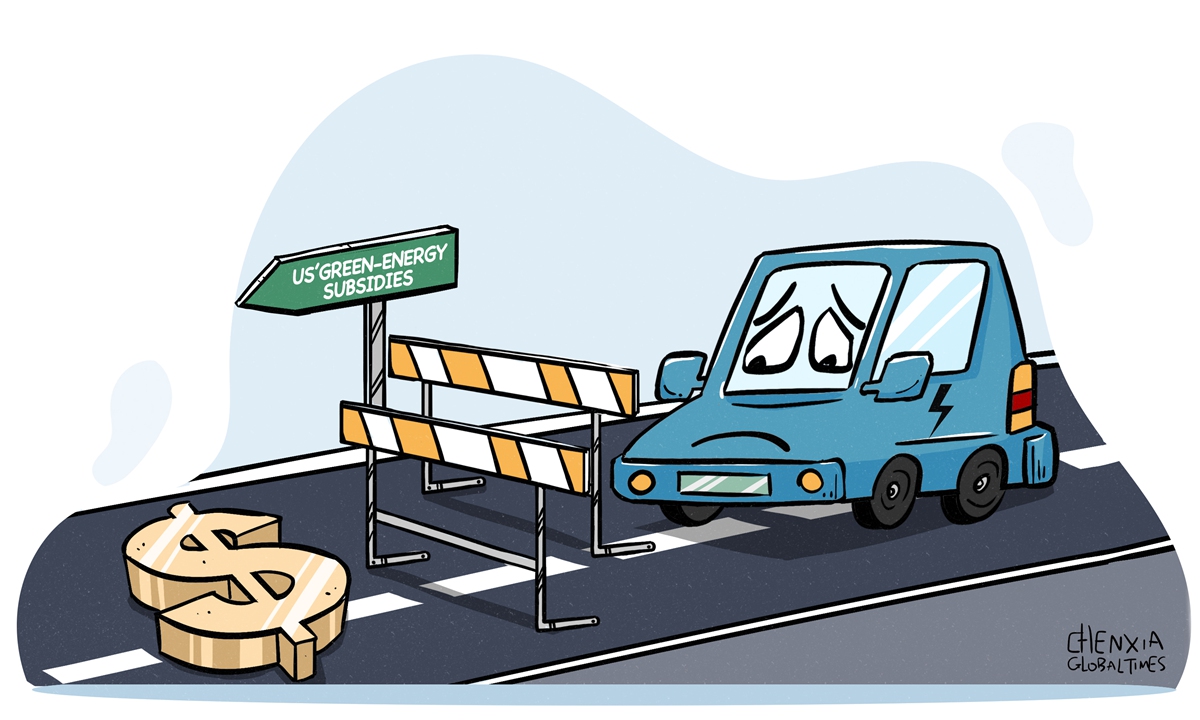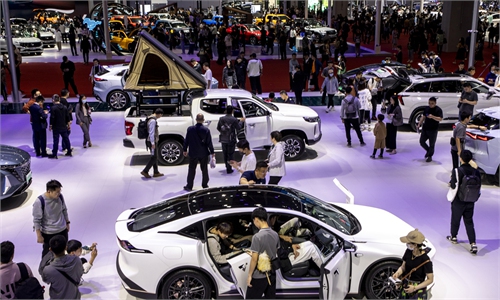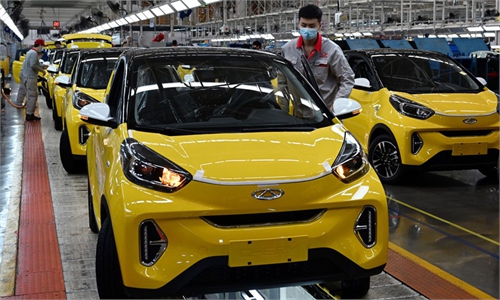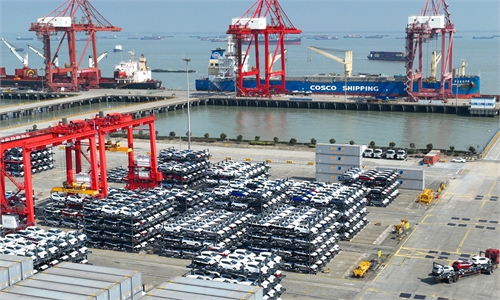
Illustration: Chen Xia/Global Times
US electric-car maker Tesla has begun producing in Shanghai a version of the Model Y to be sold in Canada this year, the first time it will ship cars to North America from China, Reuters reported on Monday, citing a person with direct knowledge of the plan. Though it's not confirmed yet, the news has once again cast doubt on the effectiveness of North American countries' green-energy subsidies.With the Inflation Reduction Act (IRA) signed into law in August, 2022, the Biden administration has introduced sweeping tax incentives and green-energy subsidies aimed at re-energizing American manufacturing by incentivizing domestic production in clean-energy technologies and new-energy vehicles (NEVs).
Some Western media outlets have also previously reported that Washington's push to counter China will perhaps make Canada, a member of the North American free trade zone, a more attractive investment destination for NEV makers, especially after the Canadian government announced in March C$80 billion ($59 billion) in tax credits for clean technology over the next decade. So far, it seems that things are not progressing as smoothly as Western politicians expect.
In March, Bloomberg reported that the Biden administration's requirements for electric vehicle (EV) tax credits will reduce the number of models eligible for incentives. Most EVs don't meet new requirements that battery components or critical minerals are sourced from North America or US free trade partners. Because the threshold is too high, the effectiveness of US' green-energy subsidies have been reduced.
It is highly questionable how far the US' EV manufacturing ambition, which is incentivized by green-energy subsidies, will go. For decades, US companies have been outsourcing manufacturing in the belief that the competitive edge of American-made products has been eroded, partly due to high wages, crumbling infrastructure, and supply chain risk. Change cannot come about overnight, not to mention what the US relies on is simply inefficient green-energy subsidies. If the US government cannot help the economy build up competitiveness by reducing business costs, then the US will find it impossible to revive its domestic production in the EV sector.
The US should realize it is unable to counter China's economic rise, push forward economic "decoupling," and bring manufacturing jobs back just because of government subsidies. In recent years, China has become the world's top manufacturing nation, driven by domestic demand to produce everything from EVs to industrial machinery. Although the West has been hyping global manufacturers' "reduced dependence" on China, the indisputable fact is that China's strong manufacturing capacity has still provided strong supports for those multinational corporations.
Earlier this month, Tesla China and Lin-Gang Special Area Administration in Shanghai signed the construction contract for the manufacturing plant of Megapack, Tesla's energy storage product. Tesla China said the new factory will produce 10,000 Megapacks each year, equal to around 40 gigawatt hours of energy storage, and those products will be sold worldwide.
For multinational corporations, the main reason to consider manufacturing in China is always the lower manufacturing cost. China has more efficient production lines, lower material costs and lower labor costs, as well as a complete industrial chain. It's easier to find reliable and cost-efficient suppliers in China than in any other part of the world. By taking advantage of these cost savings, businesses can increase their profitability and expand their market reach.
Biden, like former US President Donald Trump, believes the US should bring manufacturing back. There may be a short-term effect on the EV industry caused by Washington's green-energy subsidies and economic "decoupling from China" push, but efforts to revive its domestic manufacturing industry through non-market means are doomed to fail in today's world economy. We believe multinational corporations will vote with feet by choosing China's cost advantage, instead of Washington which offers only an empty promise.
The author is a reporter with the Global Times. bizopinion@globaltimes.com.cn



